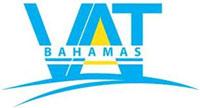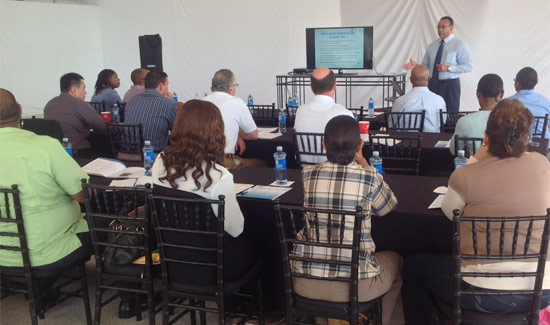 The rollout of the new Value Added Tax regime is seemingly setting up to become an unholy mess!
The rollout of the new Value Added Tax regime is seemingly setting up to become an unholy mess!
In this the second part of my VAT series, I spoke to a former Canadian tax attorney—now resident in the Bahamas—and a noted accountant who, whilst providing a general overview, asked me to allow him time to meet with a committee of the Bahamas Institute of Chartered Accountants to not only discuss the draft legislation, but to also look at the accounting and administrative aspects of VAT before we continue our discussion in the next week or so.
My ex-pat source is a Canadian Chartered Accountant and tax lawyer who moved to The Bahamas in the late 90’s. The specialist outlook on VAT emanates from the fact that he practised tax law when the Canadian Federal government enacted the GST (Goods and Services Tax) and the Quebec government enacted the QST (Quebec Sales Tax).
According to my source—he wishes to remain anonymous—VAT could hardly be effectively administered in the Bahamas because the country has a maladministered tax collection system.
Available data about the Canadian Goods and Services Tax (GST)—that jurisdiction’s Value Added Tax—shows that that country’s Federal Government launched it in 1991. At the outset, the VAT was introduced at a rate of 7 per cent and subsequently reduced to 5 per cent (where it currently stands). What’s more, Canadian VAT isn’t readily noticeable in advertised prices, as the tax is only appended to one’s purchases upon the calculation of a cunsumer’s payment, for example, if one buys a cell phone for the sale price of $200 only to have an additional five per cent or $10 added at the cash register.
That said, here in the Bahamas VAT we have decided to jump the gun and implement VAT—from the very beginning—at a whopping 15 per cent. That seems a bit absurd. Three or five per cent—or even seven per cent—would’ve seemed more reasonable and been more palatable, but 15 per cent seems ludicrous!
According to my Canadian source:
“Canada has a sophisticated tax system. It began with income war tax and was meant to be a temporary measure to finance Canadian war efforts in the World War. However, it is still in place today and served as the foundation for the current form of income tax.”
“In Canada, people must have books and records, which can be audited. All residents of Canada must declare income and expenses and pay taxes on their net taxable income. The ultimate VAT tax is on the ultimate consumer and that is the person at the end of the chain,” he said.
He went on: “The Bahamas is currently incapable of collecting the easiest tax in the world—property tax! There’s no country in the world that’s incapable of doing that. All the state has to do is bring a lien against the property and put it up for sale. It’s a no brainer! The government wants to impose a VAT in a country that is not used to paying such taxes and whilst the country itself predominantly operates on a cash based system.”
Frankly, my expat contact is right! Considering the fact that the Bahamas is only now moving away from the cash basis of accounting—per the Public Administration Act—to an accrual basis (meaning one must record what’s earned, what’s owed/accounts receivables and the expenses incurred). Oh, did I also say that Bahamian business persons—as is done in Canada and many other jurisdictions—would have to pay VAT on accounts receivables even if they haven’t collected the monies at that time (as long as it’s recorded)?
Frankly, the tax lawyer told me: “Everyone will pay cash here in the Bahamas! The whole concept of instituting VAT in the Bahamas is convoluted. It has not been established who will be trained or hired to audit the book and records of all the businesses that will claim tax credits? Who will make a determination as to whether the returns or statements that one is paying is true? Who is going to conduct an audit to properly determine if one is entitled to a tax credit? How many businesses are sophisticated enough to handle books and records?”
As it stands, my understanding is that the threshold for a business being exempted from paying VAT is $100,000. But, frankly, what stops a Bahamian business person from subdividing their companies, all to duck exceeding this threshold? Is the government going to pass legislation addressing the concept of associated companies, similar to what has been done in the United States and Canada to prevent tax fraud? In the US, if—for example—a corporation is seeking to attain a lower tax rate on its first $200,000 of corporate income, as the company approaches the $200,000 threshold its principals could simply incorporate another. In the US and Canada, if it’s found that two or more companies have similar principals or that they have been incorporated to avoid taxes, they are considered to form one pool and found to be related. So, what stops Bahamians from breaking up their companies and doing the same to avoid VAT?
Quite honestly, as it relates to VAT, I don’t believe that our national behaviour—as it concerns paying taxes and tax collections—is at a level to foster the sort of compliance that is absolutely necessary for the implementation of VAT in another few months. The effective implementation of VAT would largely depend on a culture of ethics and compliance. And, honestly, there’s not enough advance time to put in the measures, and all the other requisite aspects of a tax structure, to ensure compliance!
According to noted Certified Public Accountant Reece Chipman, “the whole VAT system—along with FATCA requirements—will be pulling money away from our economic base, along with the pressures of the OECD. It’s going to be a case of separating the sheep from the goat, the haves from the have-nots. It’s going to hit you personally and it’s going to hit you in an economic capacity, in the way we think, buy and consume. When one looks at all that is happening collectively, it’s hard. If it were happening individually, there might be room for adjustment (referring to FATCA, etc, coupled with VAT).”
So, will the ultimate responsibility for the collection of VAT fall on the Ministry of Finance or will the government pass legislation to establish a Central Revenue Agency (CRA)? If such a body is created by policy/regulation—as opposed to legislation—Mr Chipman believes that “when one thinks about compliance and penalties, it wouldn’t have that level of authority.”
According to Mr Chipman, the consumer will find themselves paying the 15 per cent whilst most “businesses will be acting as agents for the government, collecting and sending money to the government.”
“The question is, if a business is not a registered VAT agent, such a business shouldn’t be charging a consumer 15 per cent. If one doesn’t want to pay VAT, they would simply buy from those persons who are not VAT registrants, for example, Super Value could potentially get hurt as persons would shop at smaller petty shops that are exempt. There are avenues that consumers—within a household—can look at in terms of savings. My family and I will probably go and sit down and figure out how to shop, to find where we can get the most bang for our buck and if that means at the smaller convenience stores or shopping in bulk, then that’s the approach we would have to take,” Chipman said.
He went on: “We’re still on a cash based system and in cash based societies, people generally look at things to be avoided. What if stores decide to have two cash registers, one for adding up purchases for which VAT is applied and one for purchases that reflect no VAT. In Jamaica, you hear of issues of non-compliance all the time. People are looking for ways to legitimately avoid the process and one realizes that 15 per cent is no small amount. If VAT is introduced at 15 per cent, even in accounting, if I charged $10,000 before, I would now have to charge $11,500 and that higher cost could put me at a disadvantage when compared to accountants in other jurisdictions.”
So, will a Central Revenue Agency (CRA) be tied to the Registrar General Department and Business Licensing in order to detect those persons who establish multiple companies for the purpose of avoiding taxes? What are the penalties proposed for such persons?
How would a CRA be constituted? Would it be composed of accountants, auditors, outside consultants, who?
I look forward to hearing the debate of the draft VAT legislation in January!
By Adrian Gibson



